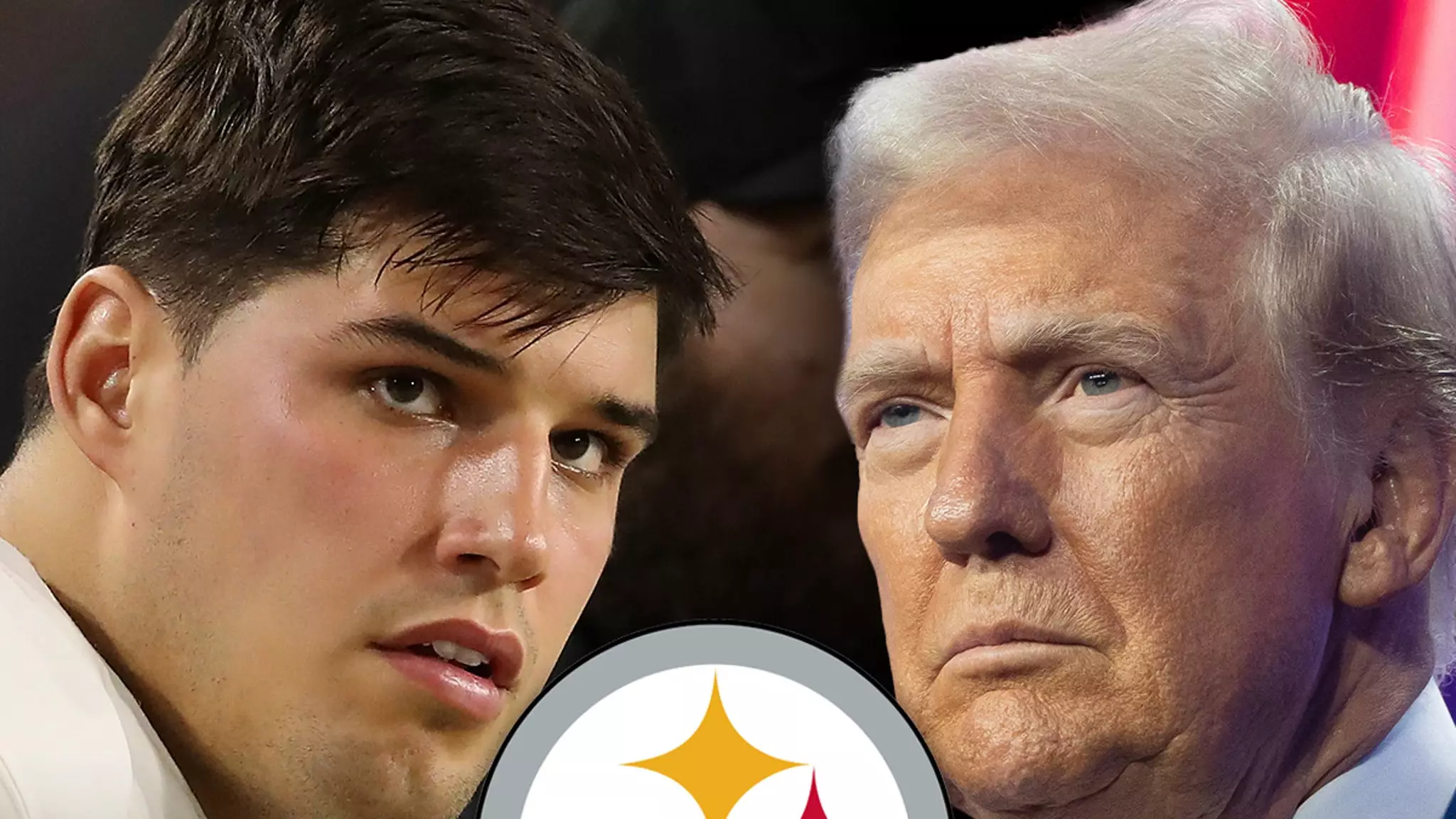In an era where individual beliefs increasingly influence collective identities, the Pittsburgh Steelers organization has found itself navigating a complex landscape following quarterback Mason Rudolph’s appearance at a President Trump rally. The incident incited a whirlwind of reactions from fans, leading the Steelers to clarify their stance — a notable step that emphasizes the importance of unity in a city known for its passionate sports culture. It’s a situation that raises questions about the relationship between athlete activism, political affiliations, and fan loyalty.
Response to Controversy
The Steelers’ reaction encapsulates a crucial point of tension: while athletes are public figures with their own beliefs, they are also part of a larger team identity that must appeal to a diverse fan base. The team issued a letter reminding fans that current and former players’ views are personal and do not define the organization as a whole. This move is strategic; by dissociating themselves from individual actions, the Steelers aim to maintain an inclusive environment for their supporters. Yet, this approach may also be seen as a double-edged sword. On one hand, it reflects a commitment to unity, while on the other, it could feel dismissive to fans who wish for their team to take a stand on societal issues.
Fan Reactions and the Divisive Nature of Celebrity
The varying reactions from fans speak to the polarized political climate. For some, Rudolph’s participation in a Trump rally is a flagrant misstep, potentially alienating fans who oppose the former president’s policies. For others, it could be an admirable display of personal conviction. This division underscores a growing challenge for sports organizations: balancing the diverse beliefs of fans with the need to maintain a cohesive team identity. The very public nature of athletes means that their actions can elicit strong emotions, transforming personal choices into public spectacle.
Potential Implications for Team Dynamics
Moreover, the implications extend beyond public relations. The relationship between players and their team may shift based on how they navigate their political affiliations. For Rudolph, receiving public praise from Trump adds a level of scrutiny to his performance and character. The expectation that he will be the starting quarterback increases the stakes, not just for himself, but also for how fans will embrace him moving forward. Can he become a unifying figure despite the political controversy? Or will his image remain tainted in the eyes of those who disagree with his political choices?
Broader Lessons Beyond Pittsburgh
This episode illustrates a broader trend in sports where political allegiance and social advocacy often intermingle, resulting in complex dynamics that challenge traditional notions of loyalty. It forces all sports stakeholders — from players to fans — to confront their own beliefs and how these beliefs resonate within the larger community. The Steelers case is not an isolated event; it reflects a national conversation about the role of professional athletes in societal dialogue and highlights the delicate balance they must strike in their public and private lives.
The challenge is not just to perform athletically but to navigate the intricacies of modern public life in a manner that respects diverse viewpoints while also honoring personal convictions. This evolution in the sports landscape is one we must continue to watch closely, as it holds implications that could reshape not only individual franchises but the very essence of fandom itself.

